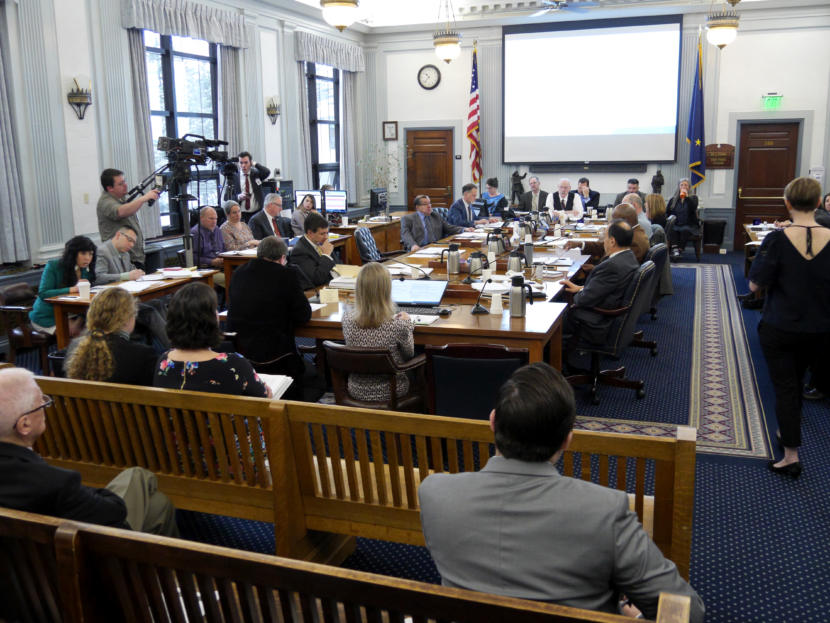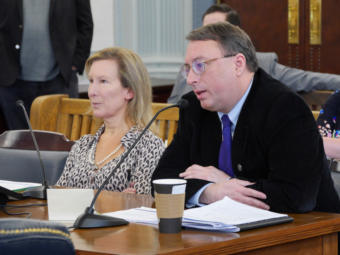
Legislators are pushing back on elements of Gov. Michael Dunleavy’s budget proposal. That includes the effect on public schools.
The Senate Finance Committee on Monday gave state budget director Donna Arduin a sense of how concerned they are about Dunleavy’s proposed budget.
Fairbanks Republican Sen. Click Bishop asked about the proposed $312 million reduction in the share of the education and early development budget controlled by the Legislature.
Arduin replied that the proposal is based on Dunleavy’s commitment to maintaining state savings.
“We’re doing this because the state is out of money, and we need to balance our budget,” she said.
Bishop wasn’t pleased: “With all due respect, ma’am, that’s the wrong answer.”

Anchorage Republican Sen. Natasha von Imhof said that to maintain Dunleavy’s commitment to full permanent fund dividends — without having an income tax — would require cuts on the scale he’s proposed.
“The public has a choice,” she said. “This is what a budget looks like to pay a full dividend. How does it sit with you?”
Von Imhof said she would like to see the Dunleavy administration suggest changes that would help school districts implement the proposed cuts. That includes addressing the costs of health care and other benefits, which have grown the most of any school costs over the past 12 years.
“I would just think that there would have been more of a plan when rolling out one of our top constitutional requirements here, on (the state’s) obligation for education,” von Imhof said, later adding: “There just seems to be cuts and then nothing more. It’s like, incomplete.”
Arduin said the state doesn’t control what districts do with their money. But she added that the administration is open to ideas from lawmakers on making changes, and is also working on ideas.
“We see the fiscal plan as solving our fiscal problems in our state, but not the end of the process. (It’s) the beginning of the process,” she said.
Bethel Democratic Sen. Lyman Hoffman spoke with passion about the 25-percent cut to per-student state funding in the proposal, saying it’s “completely unacceptable.” It would amount to roughly $1,050 less for each student. Hoffman expressed sympathy for school district officials faced with planning for the proposed cuts.
“How are they going to be able to wrap their heads around this?” he said. “You know, it’s an impossible question. And I don’t expect you to answer it, and I don’t expect that they will be able to answer it either. This is an impossible task.”
State budget policy director Mike Barnhill said the governor’s proposal has brought the state’s budget problems into sharp focus.
“With the deficit of the size that we have, there’s literally no plan that we can put before this committee, some element of which somebody won’t hate,” Barnhill said.
Golovin Democratic Sen. Donny Olson differed with him.
“What I see within this budget is the oil companies don’t see anything in here to go ahead and hate,” Olson said. “They, in fact, probably embrace (it), because they are left harmless.”
Some minority-caucus Senate Democrats support reducing oil tax credits to close the gap between how much the state has spent and what it brings in. Arduin said Dunleavy has been clear that he’s not planning to raise taxes. And he hasn’t proposed changing the current tax structure.
Andrew Kitchenman is the state government and politics reporter for Alaska Public Media and KTOO in Juneau. Reach him at akitchenman@alaskapublic.org.




